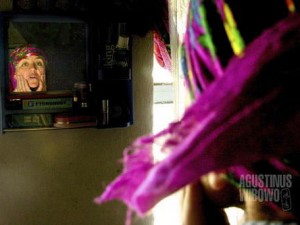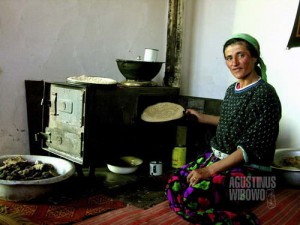Karaköl – Depressed Life
The Gulsaira family I arrived in Karaköl by accident. At first I planned to go from Osh to Toktogul by a direct bus. Toktogul is located on the midway going to Bishkek. But I missed the bus. The jouney then turned to be quite exhausting, as I had to take first the bus to Jalalabad for 100 Som, then 90 Som from Jalalabad to Tashkomur. I arrived in Tashkomur almost dark. Tashkomur is famous for its electrical generator produced by the dams. The town is also a sad witness of the deterioration of Kyrgyzstan economy after the independence. Now it is a quiet sleepy town 2 km away from Osh-Bishkek highway. It was not the place I really want to spend a night. I was lucky when suddenly came a bus signed “Toktogul”. I jumped in, wishing to see my old friends in Toktogul on the very same day. After two hour journey (100 som), the crowded minibus suddenly emptied in the middle of the town of Karaköl. It was complete dark already. The bus didn’t continue any further. It just stopped in [read more]


